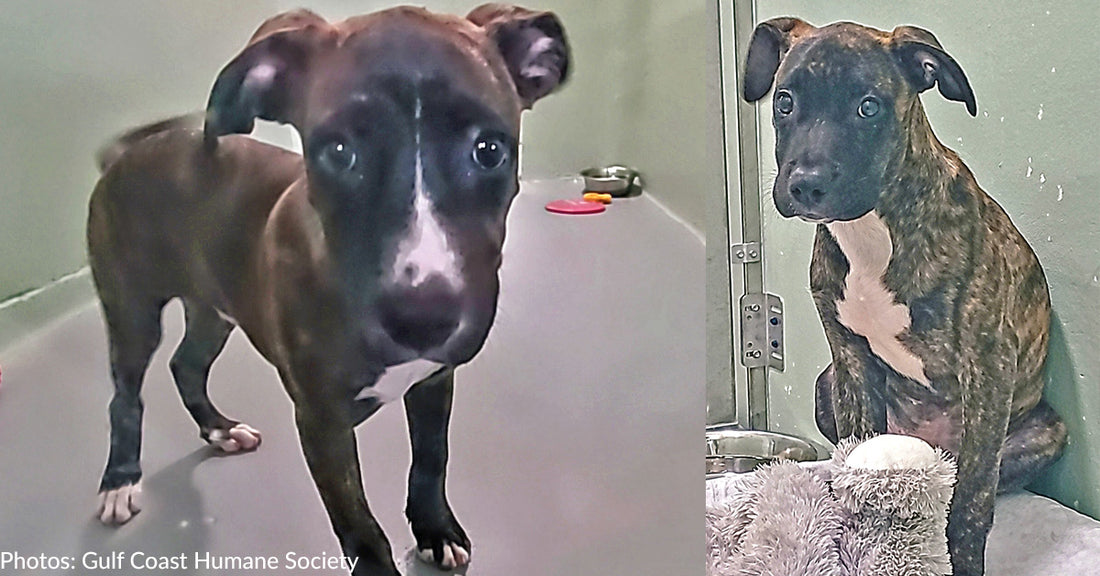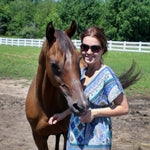Puppies With Deadly Parvovirus Rescued From Rural Shelter Just In Time
Andrea Powell
Gulf Coast Humane Society (GCHS) in Fort Myers, Florida, takes in roughly 300 dogs and cats from Labelle Animal Control every year. The overcrowded and underfunded rural shelter is unable to provide vaccinations or medical treatment. A recent transfer of a litter of terrier mix puppies found as strays turned into an emergency situation.
The unvaccinated 4-month-old puppies arrived at GCHS and tested positive for the deadly and highly contagious canine parvovirus. When left untreated, nearly 90 percent of dogs die from complications related to parvovirus.
 Photo: Gulf Coast Humane Society
Photo: Gulf Coast Humane SocietyAccording to American Veterinary Medical Association (AVMA), "The virus affects dogs' gastrointestinal tracts and is spread by direct dog-to-dog contact and contact with contaminated feces (stool), environments, or people. The virus can also contaminate kennel surfaces, food and water bowls, collars and leashes, and the hands and clothing of people who handle infected dogs. It is resistant to heat, cold, humidity, and drying, and can survive in the environment for long periods of time."
The puppies were named Darby, Davy, Dylan and Duff. Dylan and Davy were rushed to an emergency clinic as their health was quickly declining. The remaining pups were quarantined and began treatment by the expert medical team at the shelter.
 Photo: Gulf Coast Humane Society
Photo: Gulf Coast Humane Society"After nearly two weeks of intensive care, Dylan and Davy's condition improved and eventually were transferred back to GCHS," wrote the shelter. "Fortunately for all these sweet shelter pets, the Parvovirus did not win".
AVMA shares the treatment protocol for puppies with parvo, "No specific drug is available that will kill the virus in infected dogs, and treatment is intended to support the dog's body systems until the dog's immune system can fight off the viral infection. Treatment should be started immediately and consists primarily of intensive care efforts to combat dehydration by replacing electrolyte, protein and fluid losses, controlling vomiting and diarrhea, and preventing secondary infections. Sick dogs should be kept warm and receive good nursing care. When a dog develops parvo, treatment can be very expensive".
The puppies are expected to make a full recovery, but their medical bills are quickly adding up. The shelter shared with us, "The impacted puppies were strays we transferred from our rural shelter partner in Labelle, Florida in Glades County. They do not have vaccines to provide any of their animals, so the burden to medically prepare each dog and cat for adoption falls on the transfer partner."
 Photo: Gulf Coast Humane Society
Photo: Gulf Coast Humane SocietyThey reached out to Greater Good Charities' Emergency Animal Medical fund to help cover their medical care. The fund was started to help save the lives of shelter pets who are in need of emergency medical care. Most animal shelters are unable to afford medical care and food for all the animals in their care.
Medical fosters have come forward to help care for the sick puppies and help them recover. As soon as the puppies are finished with treatment and test negative, they will be healthy and pain-free while they wait to find their new home.
 Photo: Gulf Coast Humane Society
Photo: Gulf Coast Humane SocietyPets receiving critical care facilitated by an Emergency Animal Medical grant may not be eligible for adoption until they have completed their course of treatment. If you would like to inquire about adoption of a specific animal, we strongly encourage you to visit the shelter's specific website first as that is often the most up to date place to learn about available pets and review the adoption policies and process. Check out GCHS's website to see all adoptable pets.
Help us meet our goal of $5,000 to care for these puppies. Your support will not only give them the hope to keep fighting, but your donations will help cover the ongoing care they will need.

Andrea Powell is an animal enthusiast who resides in West Michigan. When not writing, she is exploring the great outdoors with her dogs and horses.





















